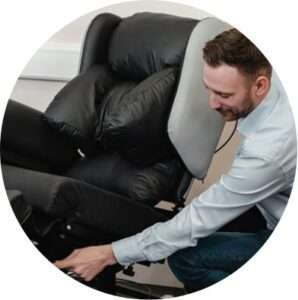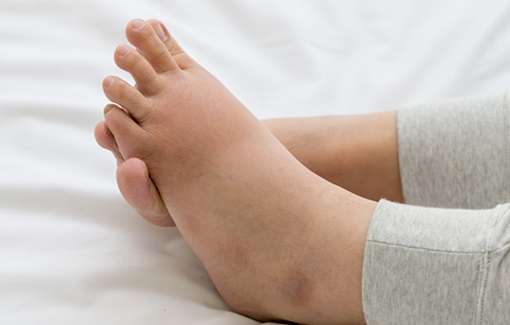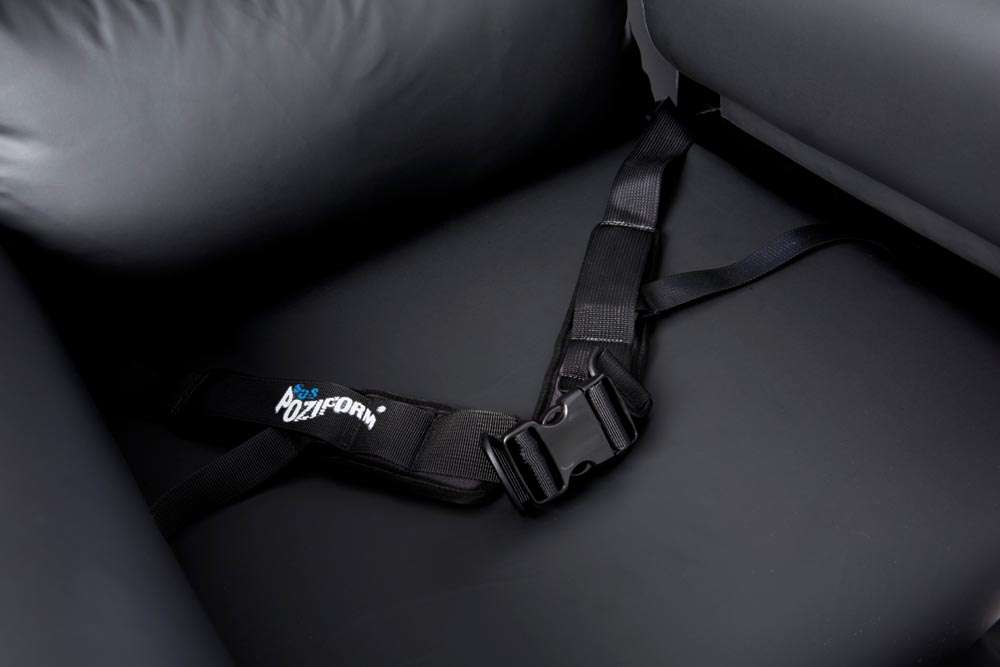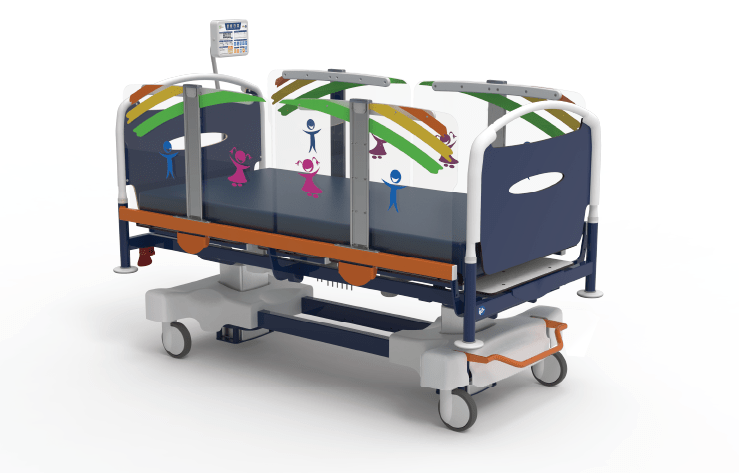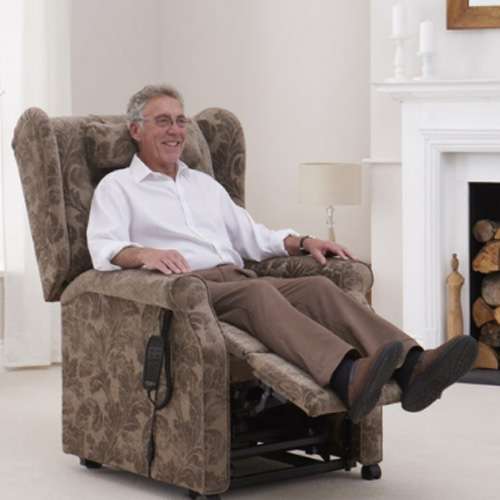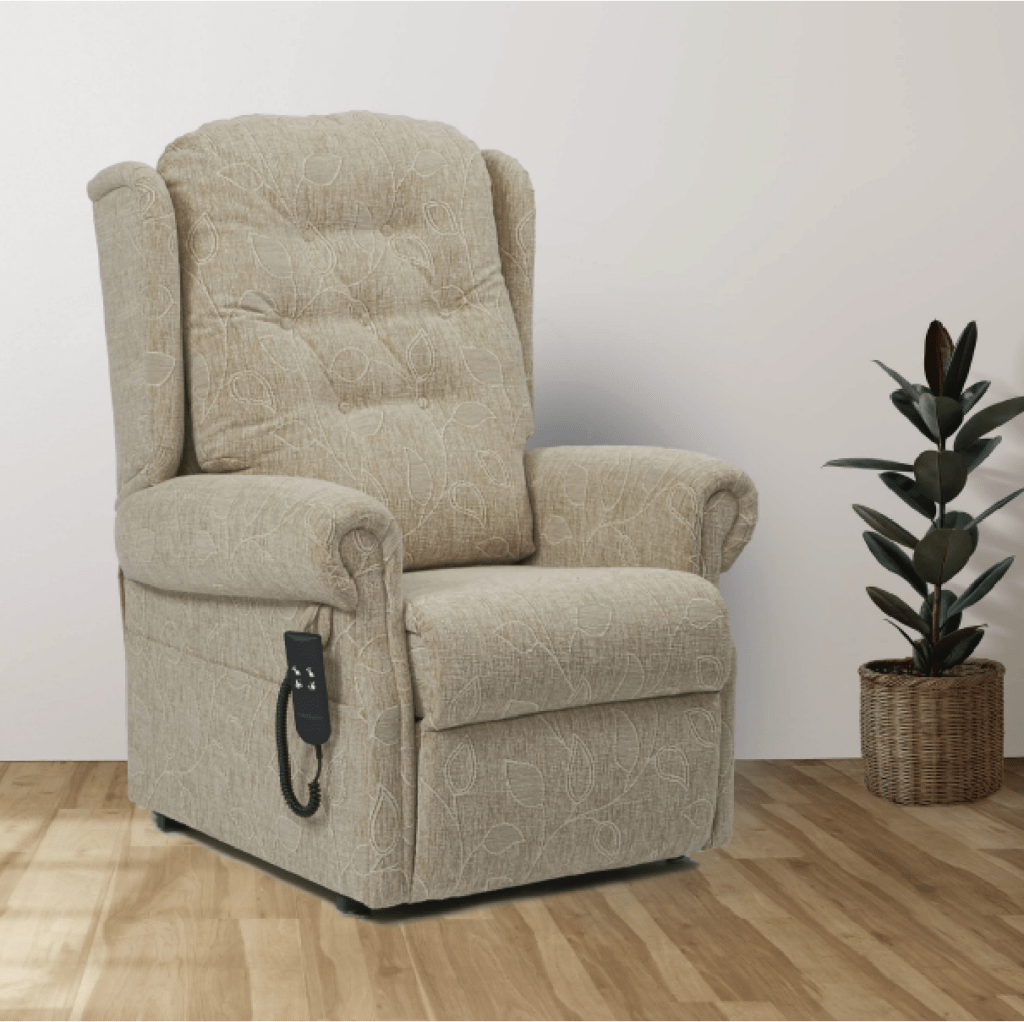Cardiovascular diseases (CVDs) are the leading cause of death in the UK, contributing to 170,000 deaths annually. CVD is a catch-all term for conditions that affect heart and circulation, including high blood pressure (hypertension), strokes and vascular dementia.
To put the scale of the issue into perspective, there are twice as many people in the UK living with heart and circulatory diseases than with cancer and Alzheimer’s combined.
Coronary heart disease is caused by a build-up of fatty material called atheroma (commonly known as cholesterol) in the arteries and blood vessels. As this builds up, it narrows the arteries and restricts blood flow to and from the heart, which can lead to a heart attack.
Obviously, lifestyle factors can lean heavily into the condition, such as an unhealthy diet, lack of exercise, and managing stress in unhelpful ways such as excessive smoking or alcohol consumption.
Whilst we’re not going to lecture you on your lifestyle habits (that’s what your GP is for!), we can advise on which seating features can help manage symptoms associated with heart disease such as poor circulation and high blood pressure.
Jump straight to…
How can Seating Help People with Heart Disease?
At this point you might be thinking, how on earth can seating help with heart health and cardiovascular issues?
While the link between seating and heart conditions might seem rather tenuous, there are functions that can be incorporated into our chairs that can help with these conditions, especially for people with restricted mobility who may be sedentary for longer periods of time.
Tilt-in-space Positioning
After getting the basics right in terms of posture and pressure relief, having a chair with enough positioning capabilities can be really beneficial for people with heart disease.
With the right electric action in the backrest, seat and legrest, a zero-gravity position can be achieved. This might sounds a bit scientific but is relatively simple and straightforward.
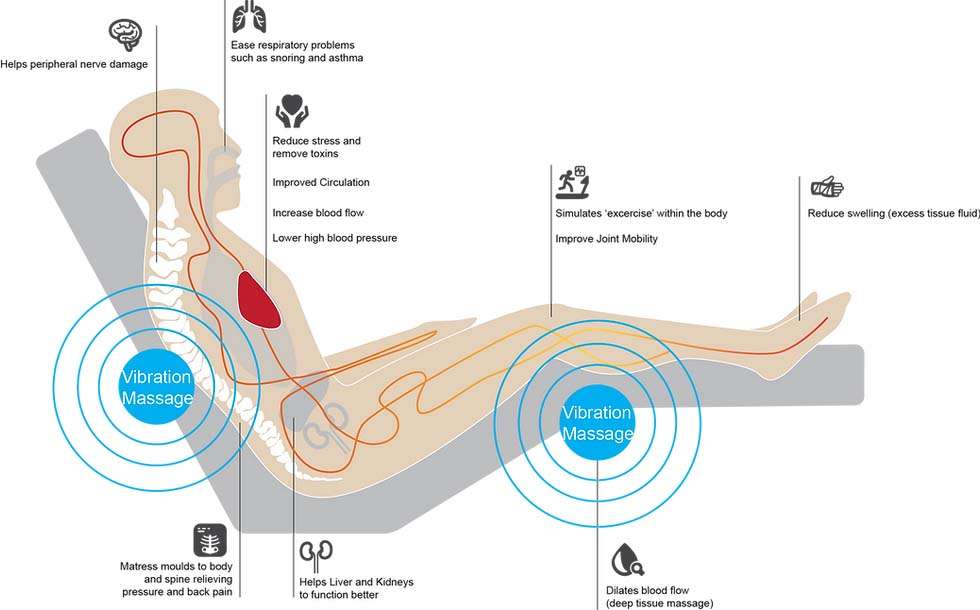
This semi-lying position can be achieved with a single or dual motor riser recliner, by using the tilt-in-space mechanism to tilt the person back in the chair and raise the footrest. This positions the legs above the heart and distributes weight evenly across the body, minimising the effect of gravity on any one area of the body, hence the name ‘zero-gravity’. In fact, there is a reason for its slightly space-age sounding name; it is the position astronauts would lie in during launch to alleviate the immense downward pressure on the body.
So leaving the spaceships and coming back to the living room, what are the health benefits of zero-gravity chairs for people with heart problems?
- Improves blood circulation. Having the feet elevated above the heart makes it easier for the heart to pump blood around the body, oxygenating the blood more and helping those with poor circulation.
- Reduces swelling. Better blood circulation helps to reduce swelling and inflammation in the limbs.
- Promotes spinal decompression. Placing the body in this neutral position takes pressure off the spine, helping the spine to decompress and release tension.
- Helps sleep apnoea. Having the head elevated rather than lying completely flat opens up the airways and reduces pressure on the chest cavity, reducing snoring and alleviating conditions like COPD or sleep apnoea. Read more about sleeping in a chair here.
Managing Stress
Simulating weightlessness in a zero-gravity position sounds pretty zen, doesn’t it? Try it out for yourself, as this seating position really does reduce the effects of stress and inflammation on the body, bringing you back to a balanced state of calm.
The therapeutic benefits of our seating range are well recounted, from the recline function to soft, anti-shear material and cushioning.
A massage function can be built into the backrest of our Dales riser recliner range, a light vibrating sensation that soothes muscles and reduces tension. As well as relieving pain and tension in the back, massage therapy promotes holistic healing through full body relaxation, improving heart health.
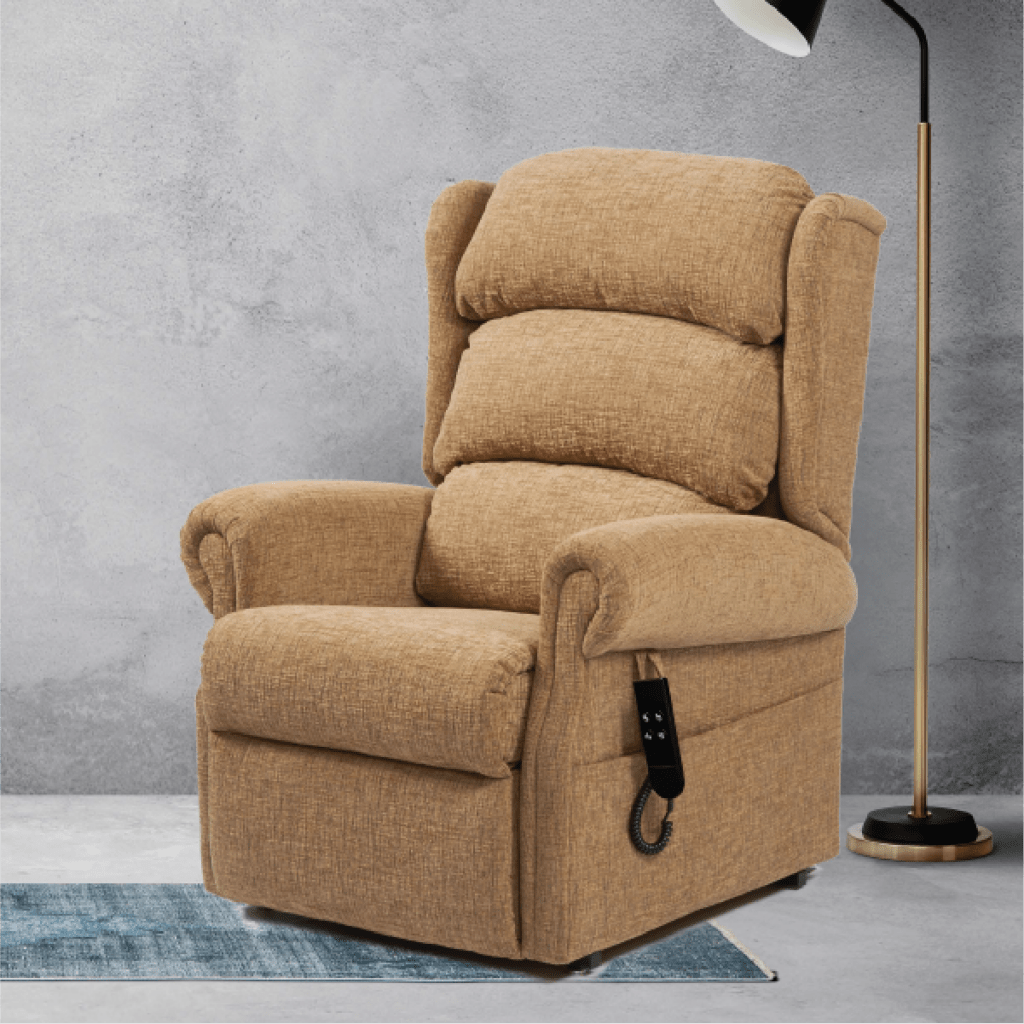
Dales Swaledale Armchair
Staying Active
It might seem a bit paradoxical for a seating company to talk about getting mobile and active. And we realise that this won’t be possible for some people with heart disease due to lifelong illnesses and conditions that restrict their mobility. But here’s the interesting bit: one of the stand-out features of our Lento range is the way they can be used to help patients to their feet in a supportive way and regain mobility.
The Lento Mobile and standard riser recliners are compatible with the Sara Stedy standaid, helping frail patients mobilise from a sitting to standing position. The vertical or graded rise functions within the Lento Mobile help patients stand who are unsteady on their feet or have trouble weight-bearing, by lifting them gently to their feet at the right speed and angle.
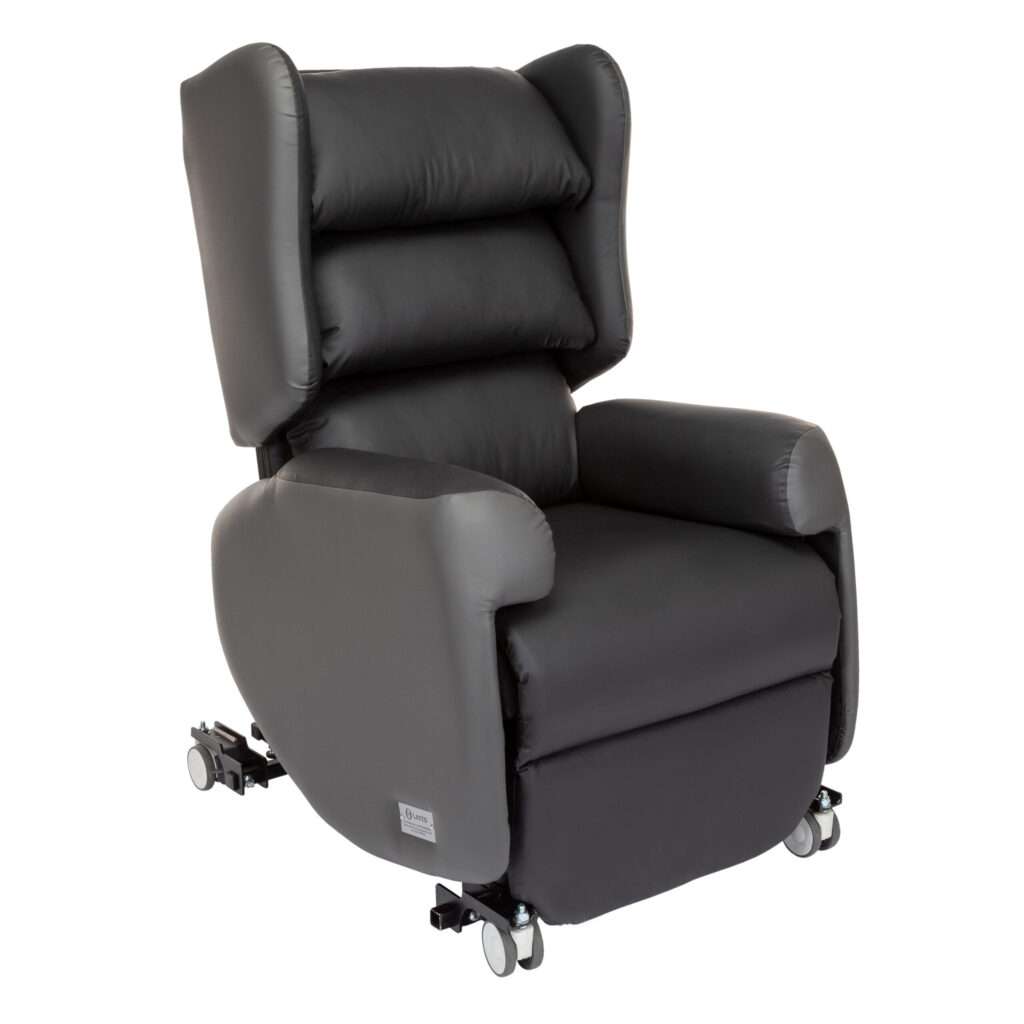
Lento Mobile riser recliner
Seating Used in Hospital Cardiovascular Wards
When recovering from acute heart problems or bypass surgery, patients in cardiac wards will need a prolonged period of rest to return to health before being discharged.
Traditionally, patients who have suffered heart attacks and are recovering from treatment have been subject to long periods of bedrest, but the problems of pyjama paralysis and deconditioning are now well documented.
Studies have shown that early ambulation and intervention reduces mortality risk for patients with heart disease more than prolonged periods of bedrest.
Seating that helps patients to mobilise needs to have high pressure relief, and an adaptable rise function to help them get in and out of the chair. The ideal solution for this is the Lento Mobile Riser Recliner, a hybrid chair that combines high comfort and pressure relief with assistive features such as vertical rise and portability to help the patient mobilise.
Conclusion
Poor circulation can lead to a higher risk of heart attack or strokes, and stress and high blood pressure can have a detrimental impact on heart health. Therefore, seating that promotes rest, relaxation and helps the body to heal can only have positive benefits for people with cardiovascular issues.
Speak to our team today



